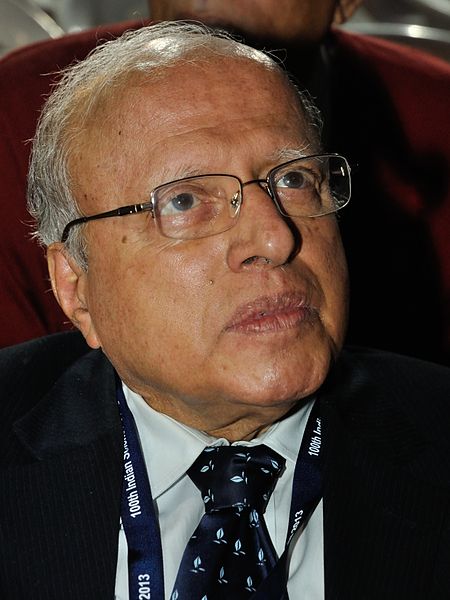Dr. Sanjaya Rajaram was an Indian-born Mexican scientist and winner of the 2014 World Food Prize. He was awarded this prize for his scientific research in developing 480 wheat varieties that have been released in 51 countries. This innovation has led to an increase in world wheat production – by more than 200 million tons – building upon the successes of the Green Revolution. The Government of India awarded him India's fourth- and third-highest civilian awards Padma Shri (2001) and Padma Bhushan (2022).
Sanjaya Rajaram
The World Food Prize is an international award recognizing the achievements of individuals who have advanced human development by improving the quality, quantity, or availability of food in the world. Conceived by Nobel Peace Prize laureate Norman Borlaug and established in 1986 through the support of General Foods, the prize is envisioned and promoted as the Nobel or the highest honors in the field of food and agriculture. It is now administered by the World Food Prize Foundation with support from numerous sponsors. Since 1987, the prize has been awarded annually to recognize contributions in any field involved in the world food supply, such as animal science, aquaculture, soil science, water conservation, nutrition, health, plant science, seed science, plant pathology, crop protection, food technology, food safety, policy, research, infrastructure, emergency relief, and poverty alleviation and hunger.

The Iowa State Capitol, where the laureates are honored and officially awarded their prize
World Food Prize Hall of Laureates, the renovated and rehabilitated former Des Moines Library
1987 recipient M. S. Swaminathan
1992 recipient Edward F. Knipling





